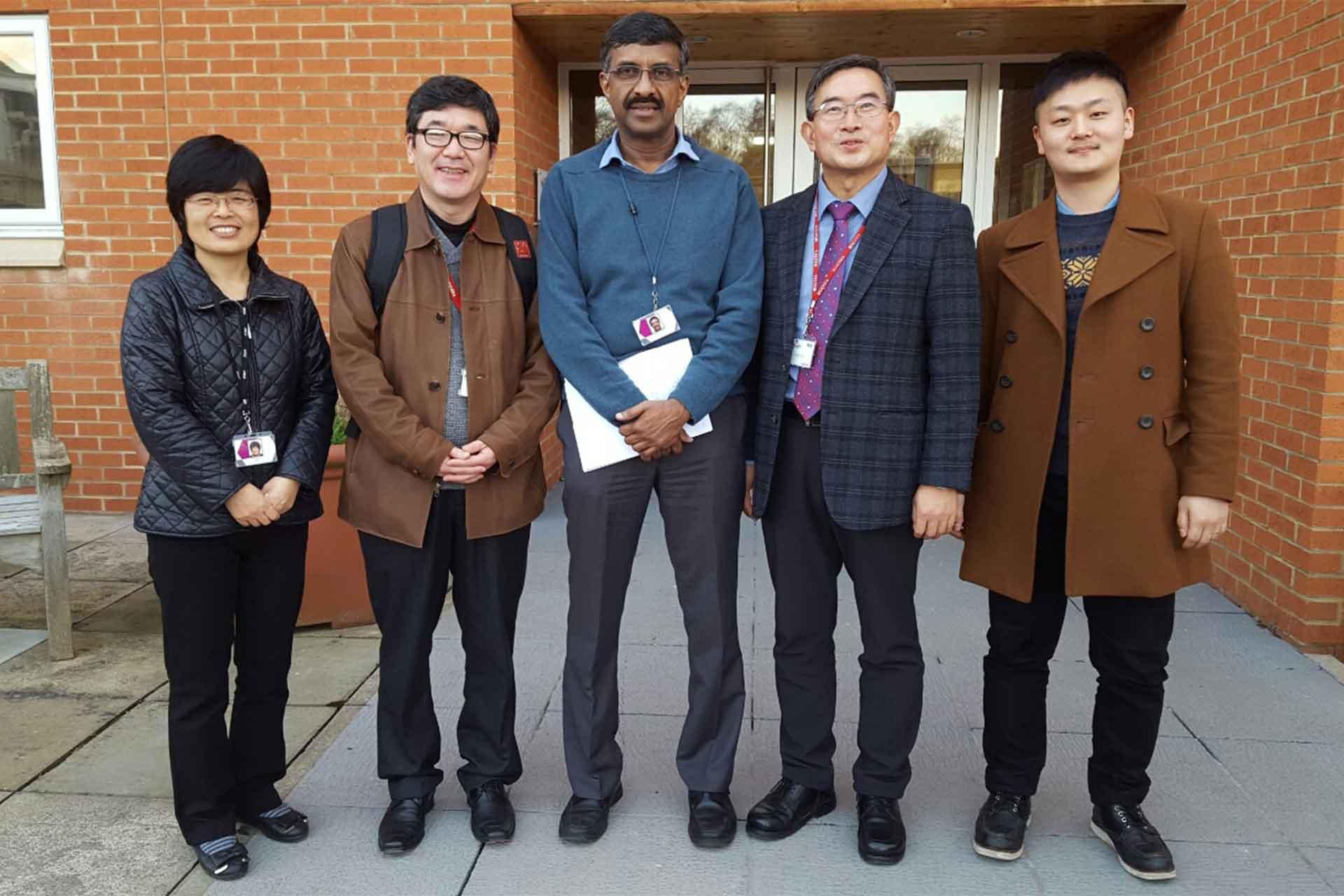Professor Venugopal Nair OBE, Head of the Avian Viral Diseases programme at The Pirbright Institute, has been jointly awarded the prestigious Royal Society International Collaboration Award for Research Professors.
This new award was established by the Society to foster and promote collaboration between outstanding research groups globally to address the problems facing developing countries and support work on world-wide challenges. Prof. Nair shares the award with Professor Jae Yong Han, Director of the Avian Germ Cell Modulation and Cloning Centre, at Seoul National University, in South Korea.
The focus of their joint research will be to control avian diseases by developing innovative vaccine strategies, and improving genetic resistance to disease through the use of new gene editing technologies.
The project will combine Prof. Nair’s expertise in virology and vaccine development and Prof. Han’s expertise in germ (sexual reproductive) cell biology and transgenic biotechnology (genetic engineering). The scientists hope their research will help to safeguard poultry farming and food security for those in low and middle income countries.
Prof. Nair said: “It is an honour to have won this joint award with Prof. Han. The work of our two laboratories on virology and transgenic technologies will complement each other well and I hope will facilitate a major step forward in avian disease research.
“Poultry farming provides an important pathway out of poverty and a vital source of nutrition for the poor, but infectious avian diseases can cause on average 20% losses and bird flu can be a significant threat to human health too. Vaccination remains the cornerstone of avian disease control strategies but most of the world’s poultry vaccines were created decades ago.
“The huge diversity of pathogens and the impact they can have in supressing the natural immune response, is now threatening the effectiveness of many vaccines. Research at Pirbright focusses on developing new approaches that would enable the production of tailored vaccines”.
Prof. Han said: “This award will be very important for both our respective Institutes and they will benefit immensely from the shared expertise.
“In addition to vaccination, exploiting genetic resistance to viral diseases is another potentially effective intervention strategy. The advent of gene editing technologies allows the generation of genetically edited birds from avian primordial germ (original reproductive) cells, providing exciting new opportunities for employing genetic resistance in the fight against avian diseases.
“Selective breeding for genetic resistance to diseases has not traditionally been popular amongst producers. We hope this approach will be more positively received, as public opinion seems to be shifting more towards animal welfare with less concern about genetic manipulation”.
(Picture shows Prof. Nair and Prof. Han (centre) at The Pirbright Institute, with members of their respective research teams.)
